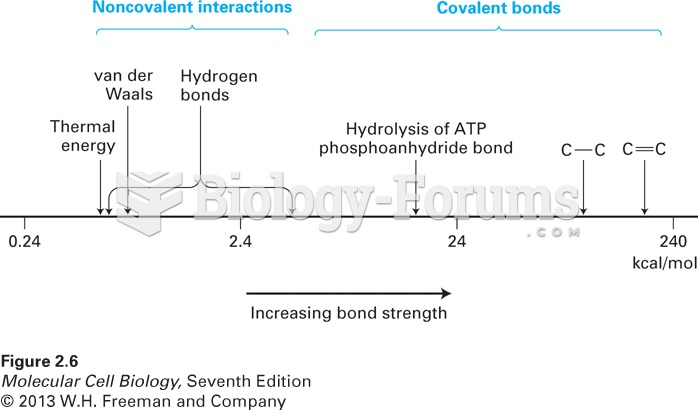|
|
|
Did you know?
According to the CDC, approximately 31.7% of the U.S. population has high low-density lipoprotein (LDL) or "bad cholesterol" levels.
Did you know?
In 1844, Charles Goodyear obtained the first patent for a rubber condom.
Did you know?
It is difficult to obtain enough calcium without consuming milk or other dairy foods.
Did you know?
On average, the stomach produces 2 L of hydrochloric acid per day.
Did you know?
Opium has influenced much of the world's most popular literature. The following authors were all opium users, of varying degrees: Lewis Carroll, Charles, Dickens, Arthur Conan Doyle, and Oscar Wilde.







